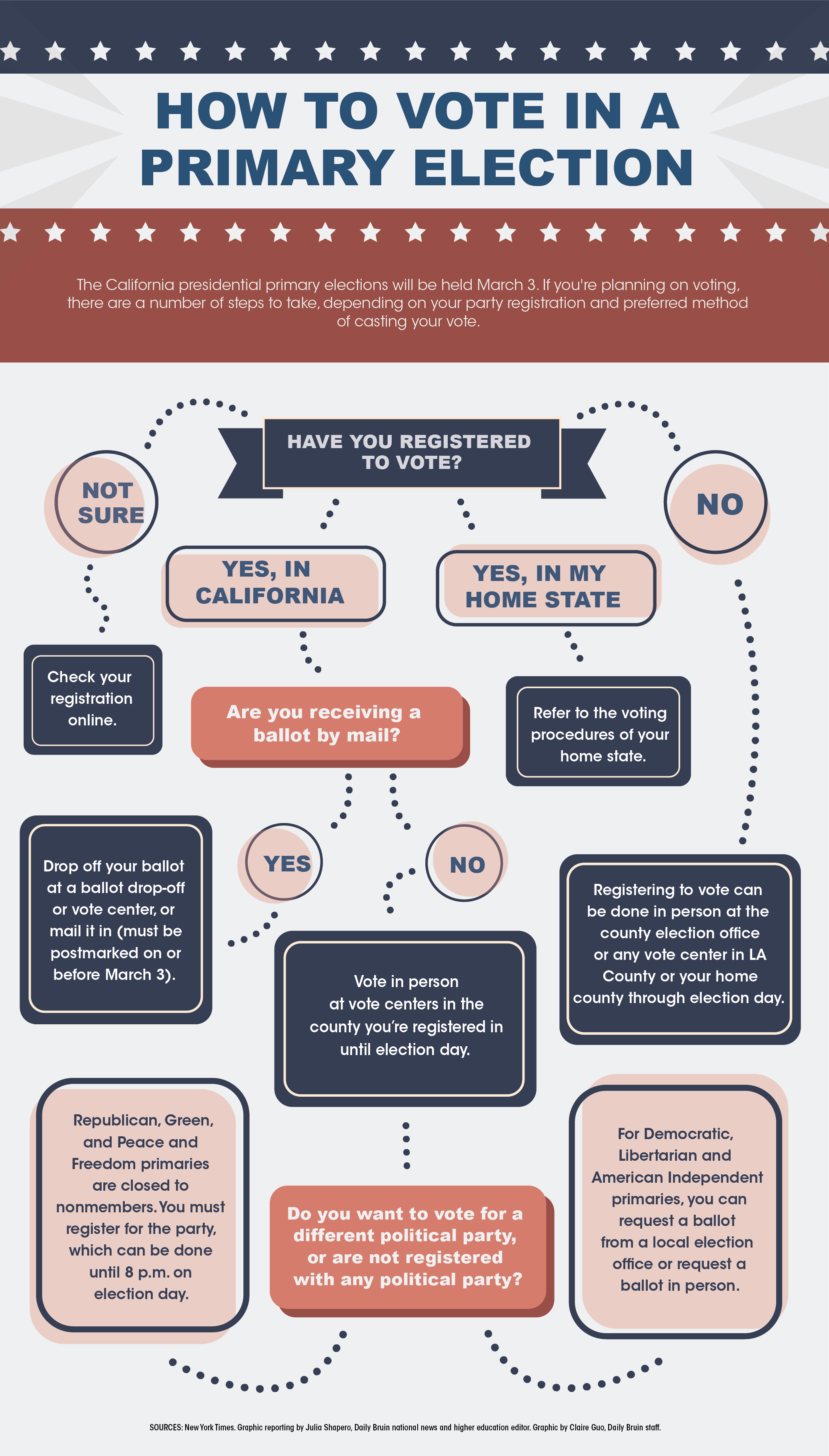Discussing why there may be low voter turnout among young people

By Alexis Duke
March 2, 2020 2:15 a.m.
Despite historically low turnout among young voters, UCLA students said they plan to head out to the polls March 3.
Voter turnout among older adults has consistently overshadowed youth turnout, according to data compiled by the U.S. Census. Midterm election turnout among young adults has only exceeded 20% three times, in 1986, 1994 and 2018.
In the 2016 presidential election, 46.1% of those aged 18 to 29 voted, compared to 58.7% of 30- to 44-year-olds, 66.6% of 45- to 64-year-olds and 70.9% of those older than 65.
Young people have historically been underrepresented in voting because of their lack of participation, said Tim Groeling, a communication professor at UCLA and member on the UCLA Communications Board.
“Historically, there’s been a bit of a vicious cycle,” Groeling said. “Students didn’t turn out, so there weren’t policies or advertising to get them to turn out, since it’s easier and cheaper to reach older people.”
Students said, while they believe voting is important, some regulations may make it difficult for some to participate.
Eric Newberry, a computer science graduate student, said he thinks the best way to make change at the local and national level is through voting.
“It’s one’s duty as an engaged citizen to participate in elections,” he said. “I think (voting) is more important this year because it’s a presidential election, and that’s a very powerful position.”
However, he added that there could be a multitude of reasons students choose not to vote, ranging from having to obtain their home county’s ballot to being too busy with school to make time to vote.
Fernando Chavez, a fourth-year philosophy student, said he thinks voting for state measures is more important than voting for a presidential candidate since state measures are more likely to affect him.
He added that, in his experience, voting can be time-consuming and confusing since people may be too busy to stop by a voting center or may be unaware of certain voting rules, recalling a past experience where he waited in line for an hour only to learn he wasn’t registered in the county he was voting in.
“I feel like some people should probably be given the day to vote because it’s obviously important, but that’s not always the case,” he said.
Having a vote center in Ackerman Union may make voting easier and more convenient for students because of a large number of vote machines and accessibility settings for students with disabilities, said Hannah Carlan, an anthropology graduate student.
“This early vote setup they have at Ackerman Union is the most incredible thing I have ever seen in my years of being able to vote,” Carlan said.
Additionally, in previous elections, young people may not have turned out to vote because policies had not seemed relevant to them, said Jim Newton, a public policy lecturer and communication continuing lecturer and the editor in chief of UCLA Blueprint magazine.
However, Newton said he believes currently it is important for students to vote because today’s policies, such as those regarding climate change, are more significant to younger people than older people because younger voters are more likely to be impacted by these policy changes.
“I’m not going to live long enough to see the most pernicious effects of climate change, but you are,” he said. “And so if you care about that issue and wait until you’re my age to start voting in a way that helps that issue, it’s going to be too late.”
Thomas Latkowski, a second-year political science and applied mathematics student, echoed Newton’s position and said youth engagement on issues like college affordability and climate change will cause politicians to address them.
“Part of the reason that I’m voting, and part of the reason I think it would be fantastic if more young people vote in this election, like more young people voted in 2018, is that this will cause politicians to pay more attention to these issues, focus on these things, solve these problems,” he said.
Groeling added that, usually, single votes don’t play a large role in determining the outcome of elections, but it may be different this time.
“California is going to be more important in determining the Democratic nominee than normal,” Groeling said. “From a broader standpoint of being able to have (students’) support be more influential, this is a great time to vote.”

